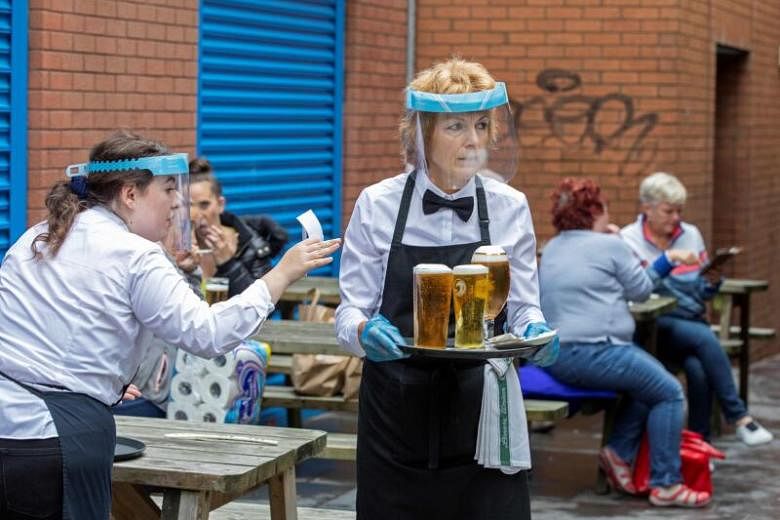LONDON (REUTERS) - The British government did not properly document key decisions nor was it open enough about billions of pounds of contracts handed out during the Covid-19 pandemic, its spending watchdog has said, as critics accuse ministers of running a "chumocracy".
The National Audit Office (NAO) said on Wednesday (Nov 18) that there had been a lack of transparency and a failure to explain why certain suppliers were chosen, or how any conflict of interest was dealt with, over £18 billion (S$32 billion) in procurement deals made between March and the end of July, often with no competition.
The report comes amid growing criticism some multi-million-pound contracts were awarded during the coronavirus crisis to companies with links to ministers, lawmakers and officials.
"While we recognise that these were exceptional circumstances, it remains essential that decisions are properly documented and made transparent if government is to maintain public trust that taxpayers' money is being spent appropriately and fairly," NAO head Gareth Davies said.
"The evidence set out in our report shows that these standards of transparency and documentation were not consistently met in the first phase of the pandemic."
Cabinet Office Minister, Julia Lopez, said they had faced an unprecedented pandemic and had "robust processes" in place to get critical equipment while ensuring value for money.
"We needed to procure contracts with extreme urgency to secure the vital supplies required to protect front-line NHS workers and the public and we make no apology for that," she said.
The NAO said that by July 31, Prime Minister Boris Johnson's government had awarded 8,600 contracts in response to the pandemic, with the vast majority for personal protective equipment (PPE).
Of these contracts, £10.5 billion were awarded without any competition.
High priority
The watchdog said a "high-priority lane" was set up to assess potential PPE leads from government officials, politicians and senior health staff. While one in 10 suppliers from the high-priority lane got contracts, just one in 100 from the ordinary lane did.
The NAO examined 20 contracts and found departments had failed to document decisions such as why a supplier was chosen or whether risks such as potential conflicts of interest were considered.
It highlighted one £550,000 contract awarded to Public First, a company that delivers focus group and communication services, that had links to senior minister Michael Gove.
"We found a lack of documentation recording the process for choosing the supplier, the justification for using emergency procurement, or any considerations around potential conflicts of interest," the NAO said, adding there was no evidence Mr Gove had been involved in the contract's award.
In recent weeks, newspapers have accused the government of running a "chumocracy" with contracts, including for the purchase of what turned out to be unusable PPE, and appointments made to those with family or business connections to those in power.
Mr Keir Starmer, the leader of the opposition Labour Party, told Parliament last week there was "a real question about the way that contracts are being awarded".
The NAO said the Cabinet Office had asked for an internal review of six PPE contracts that had attracted media attention and found "there were some gaps in the documentation, such as why some suppliers which had low due diligence ratings were awarded contracts".
But the report added: "We found that the ministers had properly declared their interests, and we found no evidence of their involvement in procurement decisions or contract management."
Britain's Business Secretary Alok Sharma refused to apologise for a lack of transparency in the deals to secure personal protection equipment, saying the government was under huge pressure to supply the front line.
"The NAO report has acknowledged that we had to do things at a great deal of pace," he told BBC television.
"The key pressure was to get PPE. We had to do an enormous amount, work very fast to secure the PPE and that's what we did."











